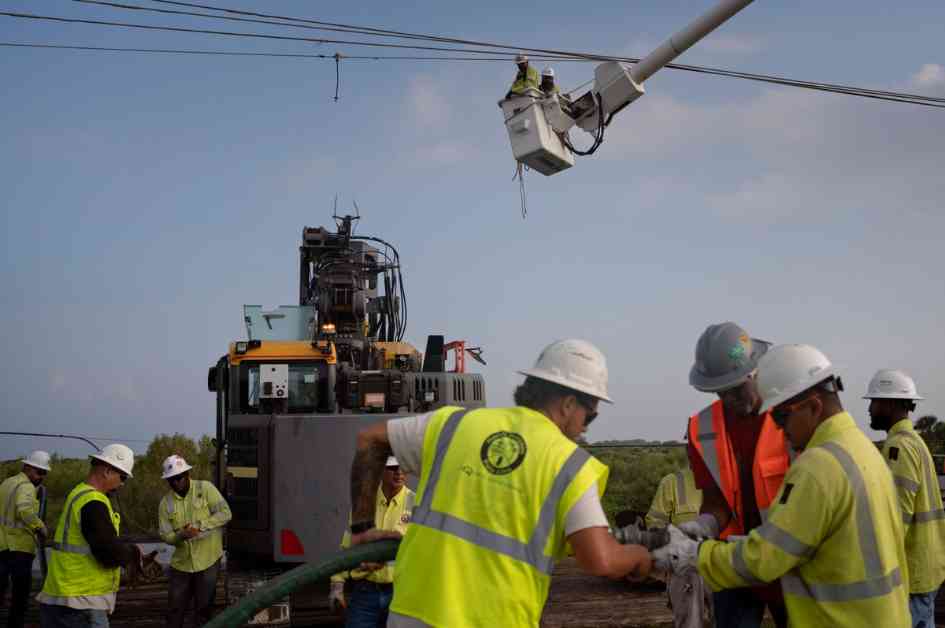More than a million homes and businesses in Houston are still without power following Hurricane Beryl. The storm knocked out power lines and left many without electricity during a heat wave with temperatures exceeding 100 degrees Fahrenheit. The situation has raised concerns about the region’s electricity infrastructure and its ability to handle extreme weather events.
The Public Utility Commission of Texas has requested utilities affected by the storm to discuss preparedness and recovery efforts. Hospitals in the area have been severely impacted, with some closing temporarily and others operating on generator power. Patients have faced delays in treatment due to the power outages, highlighting the urgent need for a more resilient system.
The aftermath of the storm has revealed the vulnerabilities of the current infrastructure, with calls for upgrades to better withstand future extreme weather events. Suggestions include the use of localized power sources like solar panels and home battery systems. The slow restoration of power by CenterPoint Energy has drawn criticism, with concerns raised about the lack of repair crews available.
The impact of Hurricane Beryl on Houston comes just months after previous storms left many without power. The need for a more robust and resilient grid system is evident, especially in light of the increasing frequency of extreme weather events. The community is facing challenges in accessing essential services and resources, with many residents waiting in long lines for basic necessities like gasoline and water.
Efforts are being made to address the immediate needs of the affected population, including setting up cooling centers and distributing supplies. The situation underscores the importance of planning and investment in infrastructure to mitigate the impact of future disasters. Houston is grappling with the aftermath of the storm, with a significant portion of the population still without power and facing challenges in the sweltering heat.
As the region works to recover from the effects of Hurricane Beryl, there is a growing recognition of the need for long-term solutions to build a more resilient and sustainable energy system. The lessons learned from this crisis will inform future planning and preparedness efforts to ensure that the community is better equipped to handle similar challenges in the future.

